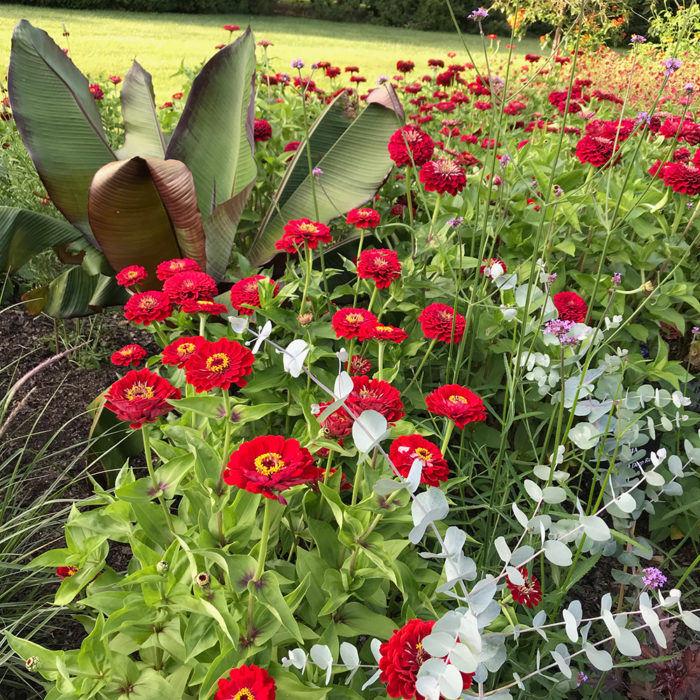
August and January are the months when I’m most concerned about how my garden looks from inside my house. There are some days in August when I honestly just don’t want to go out and face the heat. But my plants need me to push through and get a few things done. When possible, take advantage of slightly cooler mornings to get essential garden tasks out of the way.
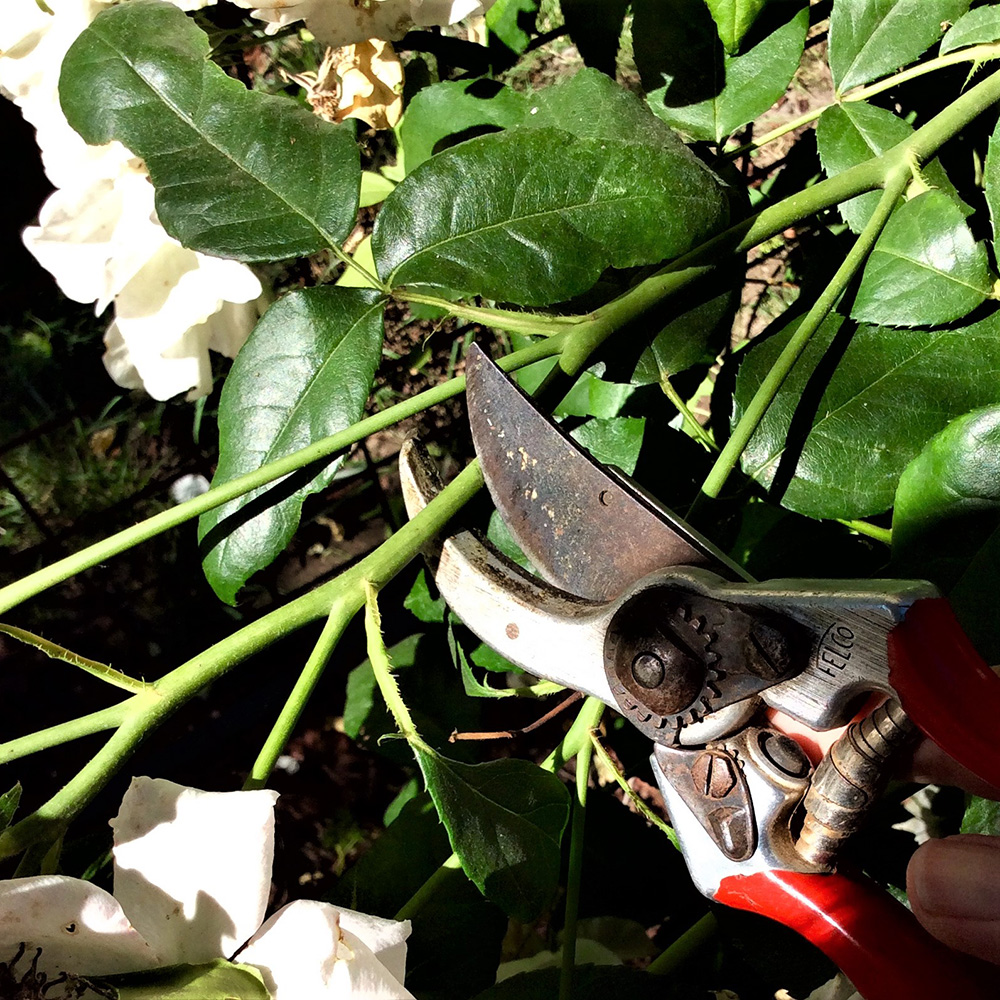
Cut back roses again. Don’t be afraid to cut roses back in August. In most cases you will be rewarded with a flush of blooms in the fall. Cut back canes to 24 to 30 inches above the ground to encourage this second flush. If rose foliage is diseased, be sure to use good sanitation practices including wiping pruners with disinfectant between cuts and throwing diseased material in the trash.
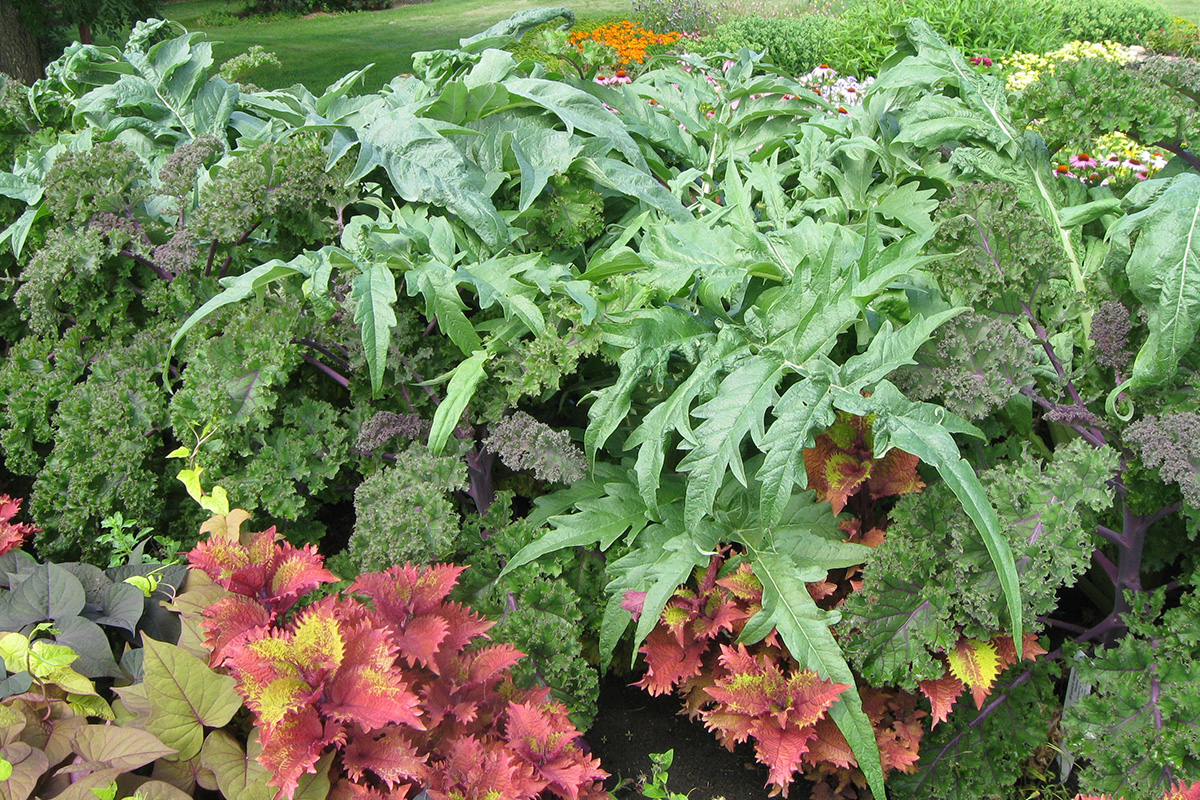
Seed brassicas. Believe it or not, the beginning of August is the perfect time to seed cool-season crops—specifically, brassicas. Brassica oleracea is the main species gardeners are concerned with growing out of this genus. Broccoli, cauliflower, kale, Brussels sprouts, collard greens, Savoy cabbage, kohlrabi, and gai lan are all cultivars of Brassica oleracea. This means they are all different forms of the same plant, which is amazing! Many of these plants have strikingly beautiful varieties that can be grown in ornamental gardens as well. So this year, grow some to eat but also some to use strictly as ornamental winter annuals. In the South, large plantings may need to be covered with a light shade netting until cooler weather arrives.
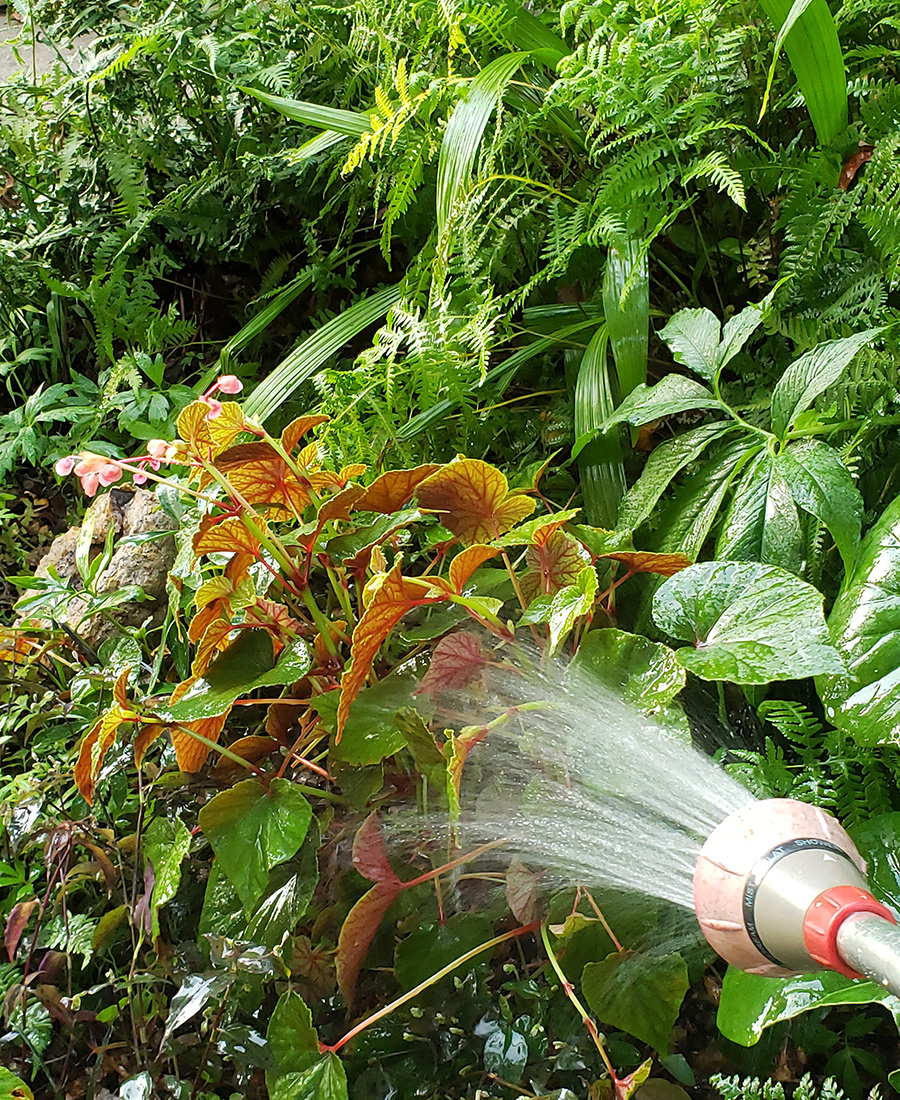
Make sure your garden stays well watered. On the list of most obvious tasks this month is watering. Potted plants and hanging baskets may need to be watered daily. However, I don’t recommend that you water everything every day just because it’s hot outside. Treat each plant and container of plants in your garden like an individual. If something is consistently moist, don’t feel the compulsion to water it in an effort to satisfy your own nurturing instincts. Plants that are overwatered tend to get used to a cushy lifestyle and will continue to demand more and more of your attention over time. Southern gardeners may want to pay particular attention to azaleas (Rhododendron spp. and cvs., Zones 3–9) and camellias (Camellia spp. and cvs., Zones 6–10) this time of year, as they are forming flower buds for next year. If you have a crop of figs (Ficus carica, Zones 7–9) that have started to ripen, make sure those stay well watered to ensure fruit quality.
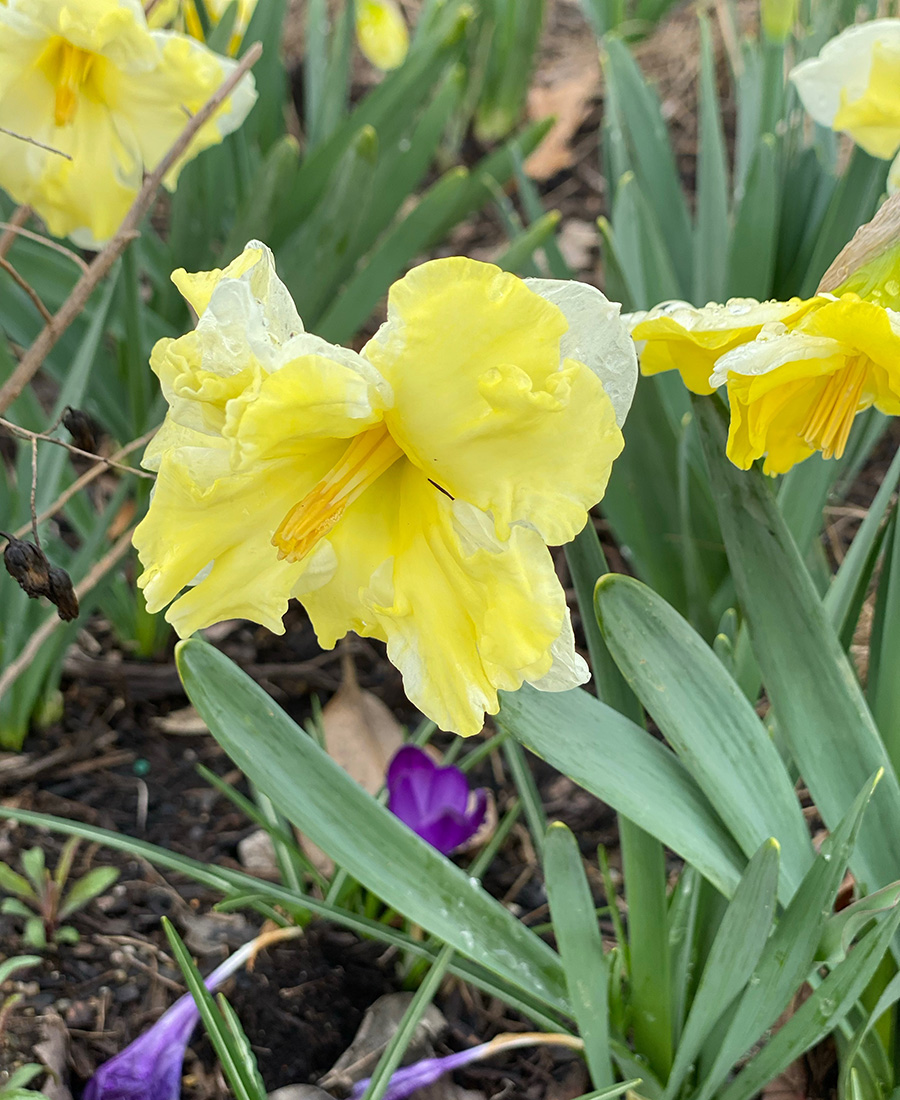
Bulk up your bulb supply. The early bird gets the best selection of spring-flowering bulbs. If you want the best selection, start scouring catalogs and your favorite sites this month. Choosing fall-planted, spring-flowering bulbs that bloom in succession is a great way to extend your spring-flowering season. For example, you can choose daffodils that are classified as early, midseason, and late blooming. Choose carefully and you can have the longest show of spring-flowering bulbs on the block. Looking for a spectacular new bulb? Check out these recommendations:
- Unique Bulbs for the Southern Garden
- Best Spring-Flowering Bulbs
- Extraordinary Spring Bulbs to Plant in Fall

Divide rhizomatous iris clumps. In Greek mythology, Iris was the goddess of the rainbow; she was a messenger who brought an arc of color to the sky. In our gardens, the bloom of irises (Iris spp. and cvs., Zones 3–9) brings a rainbow of color to our landscape. To keep irises healthy and growing strong, divide rhizomatous iris varieties now. This includes the favorite tall bearded iris. Make sure you do not plant newly divided rhizomatous irises too deeply. The top half of the rhizome should be exposed. Sometimes a temporary stake can help keep a rhizome in place. Most irises benefit from division every three years or so to keep them looking their best. Need more info on dividing irises? Read on here.
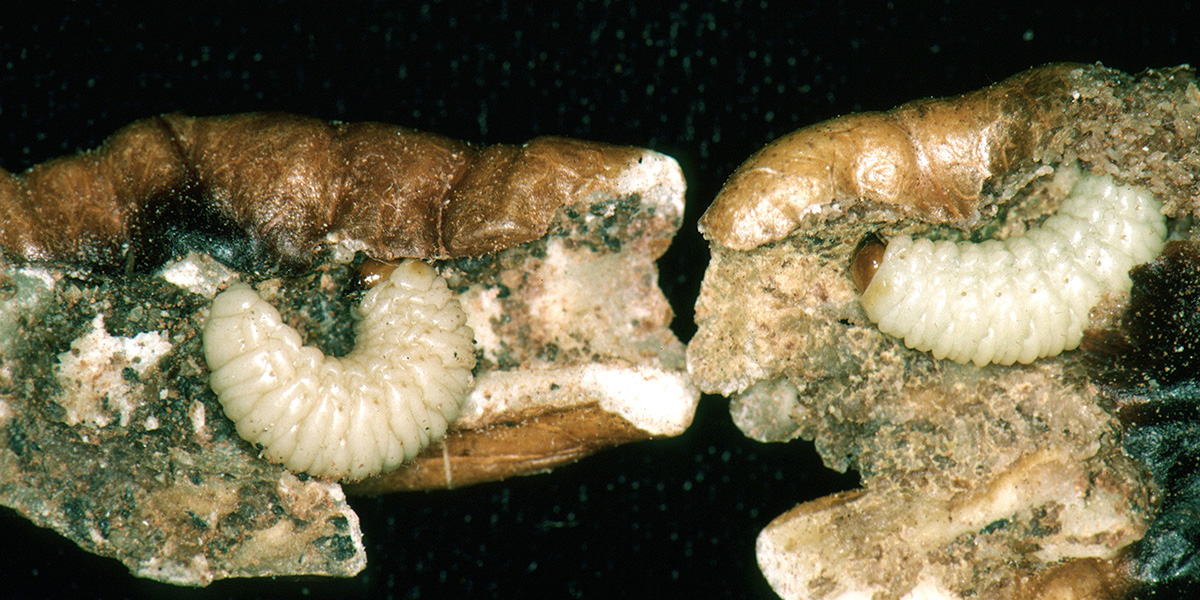
Be on the lookout for pecan weevils. Southern gardeners should look out for pecan weevils (Curculio caryae) this month, which can be a serious late-season pest of both pecan and hickory tree nuts. The adult female weevil emerges from the ground this time of year and crawls or flies up into the tree and chews a hole into nuts, where she lays her eggs. Grubs then feed on the nut’s interior (the good part!). Sanitation is key to preventing as much damage as possible to your nut crop. Pick up damaged nuts each year, and dispose of them as well as the dead sticks and twigs on the ground around the tree. Some gardeners find it helpful to use a sticky trapping barrier product around tree trunks approximately 6 feet off the ground. This method produces mixed results but might make you feel like you’re being proactive even if it is only marginally helpful.
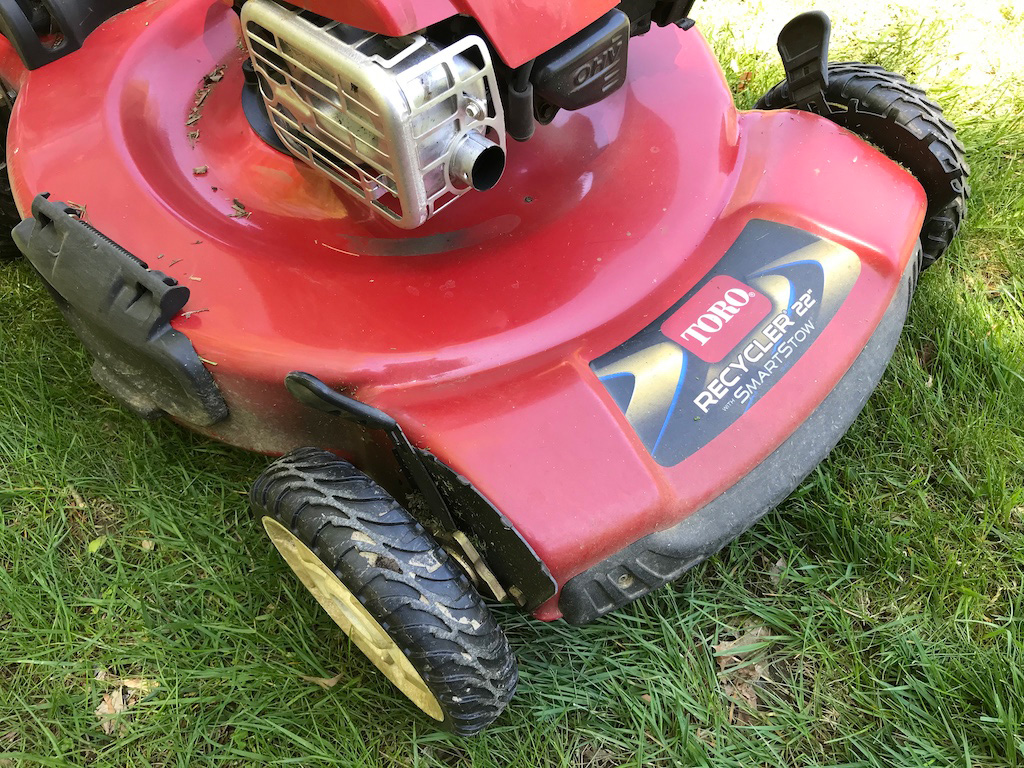
Final August Thoughts
In August I make a point of trimming old blooms off my chaste tree (Vitex agnus-castus, Zones 6–9) to encourage further flowering. Do this and you will have flowers until frost. If you have a cool-season lawn grass such as fescue, continue the process of mowing as high as possible. This will shade out weedy warm-season grass competition as well as broadleaf weeds. Additionally, it’s just better for the overall health of your lawn. Start scolding your neighbors for going overboard with pruning of trees and shrubs. This is particularly true of hedging plants such as boxwood (Buxus spp. and cvs., Zones 4–9), hemlock (Tsuga spp. and cvs., Zones 3–8), and holly (Ilex spp. and cvs., Zones 5–9). Doing so will most likely result in a flush of new growth that will not be able to harden off in time for winter. But most importantly, as August dawns, raise a glass to all you have accomplished this year. If your garden is looking good, congratulate yourself. If there is still room for improvement, make notes and make changes. The great thing about gardening is that there is always next year.
—Andy Pulte is a faculty member in the plant sciences department at the University of Tennessee.
Fine Gardening Recommended Products

Gilmore Rubber Hose Washer 10pk
Fine Gardening receives a commission for items purchased through links on this site, including Amazon Associates and other affiliate advertising programs.
- Clip of 10
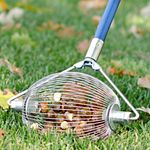
Medium Nut Wizard 14" for English Walnuts, Chestnuts, Golf Balls
Fine Gardening receives a commission for items purchased through links on this site, including Amazon Associates and other affiliate advertising programs.

Dramm 17050 50′ ColorStorm 1/2″ Standard Soaker Hose
Fine Gardening receives a commission for items purchased through links on this site, including Amazon Associates and other affiliate advertising programs.
- Conveniently waters garden and beds
- 50 ft. by 1/2 inch diameter made from recycled material; lifetime guarantee
- Made in the USA



















Comments
Log in or create an account to post a comment.
Sign up Log in